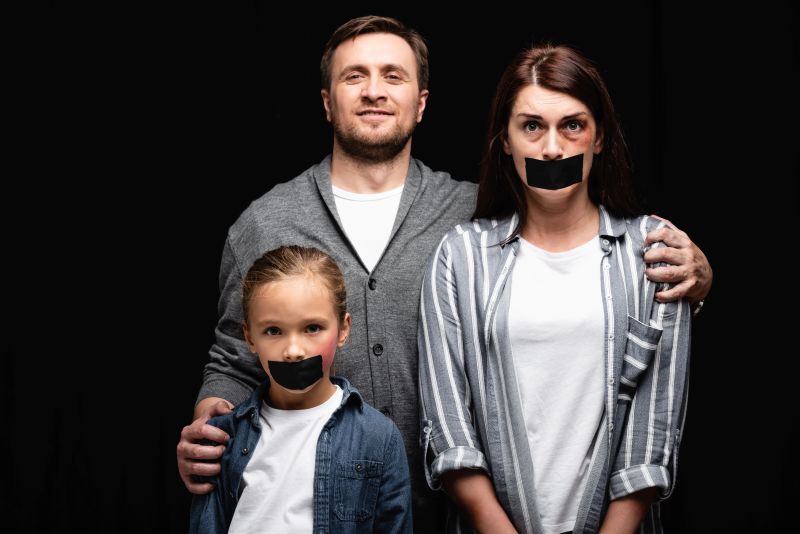Being accused of harming a family member can feel like your world is falling apart. The legal consequences are severe, with potential jail time, steep fines, and a lasting criminal record that can make it harder to find work or housing. If you’re facing charges, knowing your legal options is the first step in protecting your rights and future.
Domestic assault cases involve strict laws and high stakes, making it necessary to build a solid defense. This article guides you on common legal strategies that can challenge the prosecution’s case and weaken their arguments. See how legal representation can help fight the charges and work toward a favorable outcome.
What Counts As Domestic Assault In Fairfax County, VA?
Domestic assault happens when someone uses force or threatens harm against a family or household member. Virginia law defines household members broadly, covering more than just spouses. Under the law, family or household members include:
- Spouses or ex-spouses.
- Individuals who share a child.
- People who live together or have lived together in the past 12 months.
- Parents, children, siblings, grandparents, and grandchildren.
- In-laws they live in the same residence.
A domestic assault conviction brings severe penalties, even for a first offense. A Class 1 misdemeanor can mean up to 12 months in jail, fines reaching $2,500, and court-ordered domestic violence programs. These penalties disrupt life, affecting jobs, relationships, and reputations. Even a first-time charge leaves a permanent mark on a criminal record.
The consequences are even more severe for those with prior convictions. A third offense within 20 years counts as a Class 6 felony, carrying up to five years in prison and stricter probation terms. Felony convictions can permanently strip away firearm rights. A felony record also makes it more challenging to find housing or employment.
With penalties this severe, defending yourself against the charges becomes critical. A smart move is to build a strong defense and challenge weak evidence. Taking the proper legal steps at the start can change the outcome.
How Can You Protect Yourself Against These Allegations?
Not every domestic assault accusation leads to a conviction. The prosecution must prove guilt beyond a reasonable doubt, and several defenses can challenge their case. Knowing your legal options gives you a better chance at protecting your future.
Self-Defense
Virginia law allows people to use reasonable force to protect themselves from immediate harm. To claim self-defense, the accused must show they genuinely believed they were in danger and that their response matched the threat level. The law does not protect actions that escalate a conflict or involve excessive force beyond what was necessary to stop the danger.
Judges and juries examine the circumstances closely to decide if this defense is valid. Strong supporting evidence strengthens this strategy. For example, medical reports can prove defensive injuries, and witnesses may confirm that the accused reacted to a threat. The more concrete the evidence, the stronger the defense becomes in court.
Insufficient Evidence
Prosecutors must present credible and convincing evidence to prove guilt beyond a reasonable doubt. If key elements of the case rely on weak or unreliable evidence, the defense can challenge whether the accusations hold any legal weight.
For example, if the accuser has no visible injuries or keeps changing their story, their credibility comes into question. A case that lacks security footage, witness statements, or other supporting evidence often struggles in court. When prosecutors fail to back up their claims with solid proof, the defense can push for a dismissal or reduction of charges.
False Allegations
False accusations often stem from anger, revenge, or an attempt to gain control in legal disputes such as divorce or child custody battles. Some accusers exaggerate or misinterpret an event, leading to charges that do not reflect what happened. Regardless of the reason, false allegations can create serious consequences for the accused.
A strong defense can expose false claims by uncovering contradictions or hidden motives. Text messages, emails, and social media posts may reveal inconsistencies in the accuser’s story. Phone records or recorded conversations sometimes show admissions. Evidence can dismantle false accusations and protect the accused from an unjust conviction.
Procedural Errors By Law Enforcement
Police must follow strict legal procedures when investigating and making arrests. If officers cut corners or violate someone’s rights, the defense can challenge the case on procedural grounds. Investigators who rush through an investigation or ignore key details often create weak cases full of errors.
Officers may make mistakes such as failing to read Miranda rights, making an unlawful arrest, or pressuring a suspect into a confession. When police overlook necessary evidence or rely too heavily on one-sided accounts, their investigation lacks fairness. Defense attorneys can use these errors to argue that the case should be dismissed.
Lack Of Intent
Prosecutors must prove that the accused intended to commit the act to secure a conviction. If the injury resulted from an accident rather than a deliberate action, the charge may not stand. A moment of carelessness or reckless movement does not automatically mean a crime occurred.
For example, if someone falls and gets hurt during an argument, it may look like an assault when no attack happened. A defense based on lack of intent relies on accident reports, medical records, or witness statements. Strong evidence showing an accidental injury can weaken the prosecution’s case.
Building a strong defense starts with understanding the accusations and identifying weaknesses in the prosecution’s case. The right legal strategy can challenge false claims, weak evidence, or police errors. Beyond defense tactics, knowing how to handle the process can make a big difference in your case.
What Should You Expect During The Legal Process?
Facing charges can be stressful, but knowing what to expect helps you stay prepared. Each stage of the legal process offers opportunities to challenge the case and strengthen your defense. Here are some tips to consider:
- Stay Silent Until You Have a Lawyer: Anything you say can be used against you, so avoid discussing your case with the police or anyone else.
- Gather Evidence Immediately: Save text messages, emails, or proof supporting your story.
- Follow Court Orders Strictly: Violating a protective order or missing a hearing can hurt your case.
- Be Proactive in Building Your Defense: Work with your attorney to challenge weak evidence, expose false claims, or highlight police errors.
- Stay Off Social Media. Even if your posts or messages are taken out of context, prosecutors may use them against you.
Every decision you make after an arrest affects your case. Many people in this situation have necessary questions about their rights, legal options, and what to expect next.
What Are Some Questions About Domestic Assault Cases?
If you face charges, you are concerned about what comes next. Below are some of the most common questions and answers to help you understand your situation better.
Can The Accuser Drop The Charges?
No, the accuser does not have the power to drop charges. Once law enforcement files a report, the prosecutor decides whether to move forward, even if the accuser wants to return their statement. Prosecutors often continue cases if they have enough evidence, even without the accuser’s cooperation.
What Should I Do If I’m Falsely Accused?
Stay calm and avoid direct contact with the accuser. Gather evidence, such as text messages or witness statements, that can prove your innocence or show inconsistencies in your story. Speak with a lawyer as soon as possible to build a defense before the case progresses.
Will A Conviction Affect My Record Permanently?
A conviction stays on your record and can impact future job opportunities, housing applications, and firearm rights. Sometimes, first-time offenders may qualify for programs that lead to a dismissal.
Understanding the legal process and your rights can help you make informed decisions. Every case is different, so getting the proper guidance is key to protecting your future. Along with a solid defense, knowing how to handle each stage of the process can help protect your rights.
Why Trust Fairfax County Criminal Attorneys With Your Case?
Facing criminal charges can feel isolating, but you don’t have to go through it alone. Fairfax County Criminal Attorneys stands by your side, offering guidance and a strong defense when you need it most. Every case is different, and we take the time to understand your situation, build a strong strategy, and fight for your future.
Our team knows how much is at stake, and we don’t take that lightly. We work closely with our clients, keeping them informed and involved every step of the way. When your future is on the line, having the right legal team makes all the difference.
A domestic assault charge can have lasting consequences, but the proper strategy can change everything. Challenging weak evidence, proving self-defense, or exposing false accusations can lead to a favorable outcome. Acting quickly and understanding legal options can help protect your future.
Each stage of the legal process offers a chance to fight the charges. The right strategy can challenge mistakes, question the prosecution’s case, and protect your rights. Fairfax County Criminal Attorneys provides dedicated legal representation to build a strong defense and guide you through every step.






